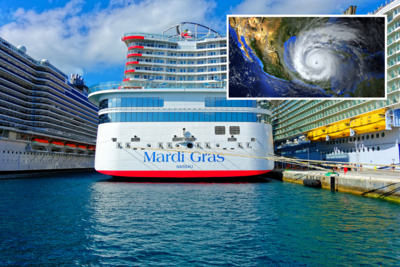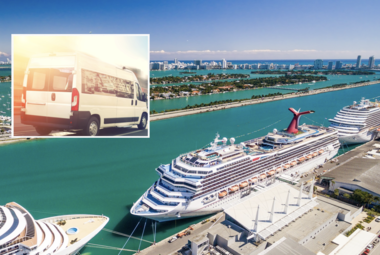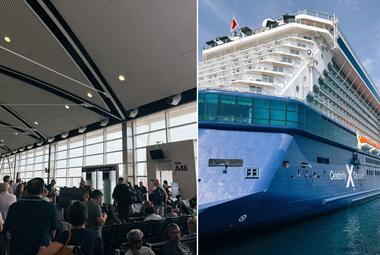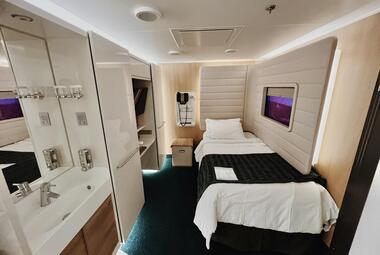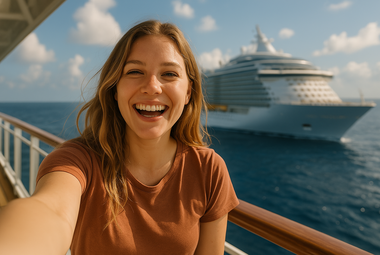What happens if your cruise crosses paths with a hurricane? Thankfully, the chances of you coming face-to-face with a monster storm are minimal. In the days leading up to a sailing, cruise lines will monitor the weather and make any necessary changes to the itinerary, keeping passengers and crew out of harm's way.
While those cruising to Alaska or the Mediterranean don't have to worry about a disturbance developing into a major hurricane and derailing their travel plans, The Bahamas and Caribbean are hot spots for hurricane activity, especially during the peak months of the Atlantic hurricane season.
It's common to hear of cruise lines adjusting itineraries during hurricane season. If a powerful storm is expected to pass through the Western Caribbean, a ship initially scheduled to visit Mexico may call at St. Maarten and St. Thomas instead. Similarly, a cruise to Bermuda could be rerouted to New England or The Caribbean to avoid the patch of an approaching storm.
When is hurricane season?
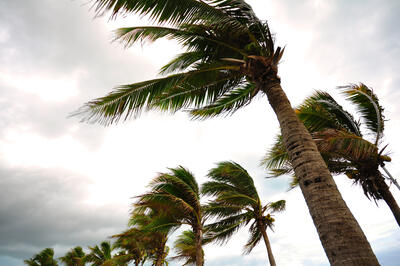
While a hurricane or tropical storm can develop in the Atlantic year-round, about 97% of storms occur between June 1 and November 30, according to the National Hurricane Center.
The peak of the Atlantic's hurricane season is mid-August to mid-October; however, that should not deter you from booking a cruise during that time, as cruise lines don't reduce their sailings to The Bahamas and Caribbean. Instead, you'll find various itineraries ranging from short 3-night getaways to The Bahamas to port-intensive voyages to the Southern Caribbean.
Though there's an average of 14 named storms annually, only a small percentage of cruises are impacted. If yours is one of them, you can rest easy knowing that no cruise line will sail into danger.
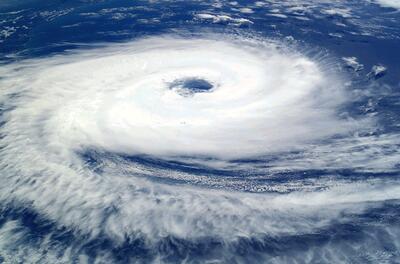
Storms sailing through the Windward Islands won't impact Western Caribbean ports like Cozumel, Mexico, and Roatán, Honduras. Hurricane-force winds from large storms can extend around 150 miles from its center, so given that most cruise ships sail around 18 to 22 knots per hour, it's easy to navigate away from adverse weather.
While it's impossible to predict when and where a hurricane will occur, the Southern Caribbean islands of Aruba, Bonaire, and Curaçao are the least likely to be impacted, as they fall outside the typical hurricane belt.
Read more: How cruise lines are preparing for an active hurricane season this year
The safety of passengers and crew is the cruise line's top priority
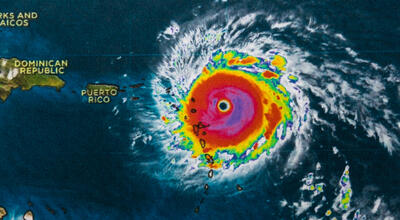
As mentioned earlier, it's unlikely that you'll ever sail through the eye of a hurricane. Why? Cruise lines spring into action when there's even the slightest disturbance. Thanks to forecasts, cruise lines and meteorologists have an idea of the storm's path days in advance, giving ships ample time to move out of harm's way.
Rather than risk thousands of lives, they will first try and find an alternate route, which is why booking a cruise for a single port of call is risky. Earlier this year, for example, at least ten cruise ships had their itineraries changed at the last minute due to Hurricane Beryl. Norwegian Jade was one. Rather than sailing to the Western Caribbean, the 93,558 gross registered ton (GRT) ship was rerouted to San Juan, Puerto Rico; Tortola, BVI; and Puerto Plata, Dominican Republic.
Read more: I visited 16 Caribbean islands on a cruise ship — these are the 3 I'd return to and the 2 I'd skip
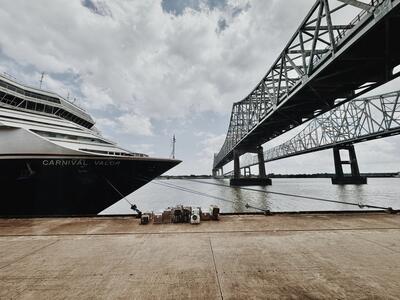
Most recently, over ten cruise ships had their itineraries impacted due to Hurricane Helene. A few ships diverted to the Eastern Caribbean, skipping Mexico. Others, such as Carnival Valor and Carnival Breeze, were stuck in the Gulf while they waited for the storm to pass.
If, for whatever reason, your embarkation port is scheduled to be impacted, they may delay the departure or, in extreme cases, cancel the sailing. The latter, however, is rare. As much as you want your cruise to happen, cruise lines do not want to deal with issuing refunds and future cruise certificates for canceled sailings.
For instance, Carnival Valor had an itinerary shortened due to Hurricane Francine. The ship was unable to return to New Orleans on time, and as a result, the following voyage was shortened from a 4- to 3-night cruise. Not only that but they didn't visit a single port of call! Instead, guests onboard enjoyed a cruise "to nowhere."
If your itinerary changes, you aren't entitled to compensation
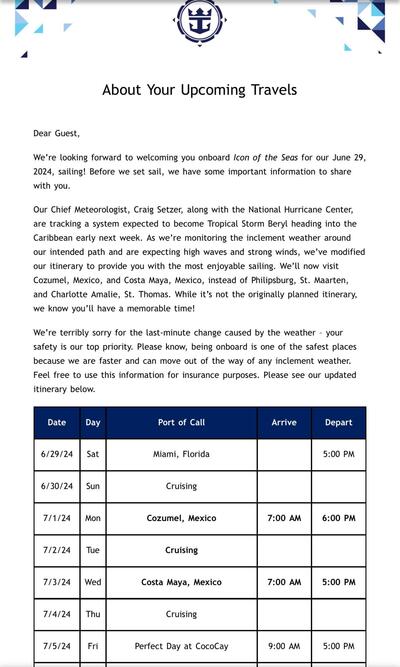
Don't expect a refund or credit applied to your onboard account if your itinerary is altered due to weather. According to Section 8(d) of Carnival's cruise contract, "Carnival shall have no liability for any compensation or other damages in such circumstances for any change in itinerary, ports of call, ports of embarkation and debarkation, and/or duration of the cruise (including a longer than planned duration of the cruise due to port closings)."
Sometimes, a cruise line will offer onboard credit if a port of call is canceled and no substitute is provided, adding an unexpected extra sea day to the sailing. If the cruise was shortened due to weather, you may receive a prorated refund for the lost days. Similarly, if a cruise line decides to extend the voyage to avoid a storm, you typically won't be charged anything extra. However, you will be responsible for onboard expenses like alcoholic beverages, spa treatments, etc.
Additionally, if you decide to cancel the trip out of uncertainty, you won't be issued a refund. Some travel insurance policies allow passengers to cancel for any reason; however, it's important to read the terms and conditions before not showing up at the terminal on your cruise's departure date.
Read more: 25 Tips to deal with bad weather on a cruise
Give yourself plenty of time to travel to your embarkation port
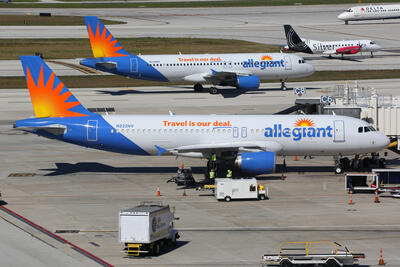
Adverse weather tends to wreak havoc on the already fragile air travel system. Flying out at least the day before your cruise gives you time to make alternate arrangements should your flight be canceled. Perhaps you can scramble and book with another airline or reserve a rental car! Flying on the day of your sailing leaves very little wiggle room for delays.
In the days leading up to your cruise, keep an eye on the weather. Hurricanes do not magically appear. Instead, they develop over a few days. If you're worried about transportation, you can always contact your airline and see if there's an earlier flight available. Those driving may decide to leave a day earlier than planned.
Read more: The costly cruising mistake newbies make planning their first cruise
Before assuming the worst and canceling flights, wait for information from your cruise line
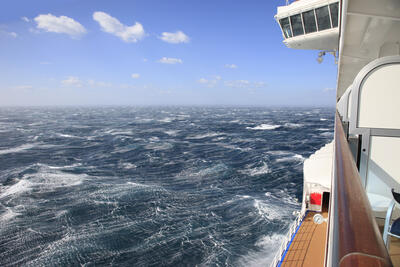
Likely, your cruise will depart as planned. However, the ports might be different than those on the original itinerary. Either way, cruise lines will do everything to ensure you have a great time onboard! When sailing during hurricane season, you must remain flexible.
If you receive an email from the cruise line advising of a shortened voyage, they will typically allow you to cancel for a future cruise credit. Sometimes, you can move to a different sailing free of charge. The cruise line's offer will be explicitly stated in the email; there's no standard hurricane refund policy, so it's important to read all communications in their entirety.
If you're given a choice, letting them know how you wish to proceed is important, as you will not be automatically bumped from the cruise unless it's outright canceled. If you want to cancel and simply do not show up, you won't be given a refund. Instead, your reservation will be treated as a no-show. Those booked with a travel agent should inform them of their decision. They'll take care of letting the cruise line know.
Gearing up for a "very active" season
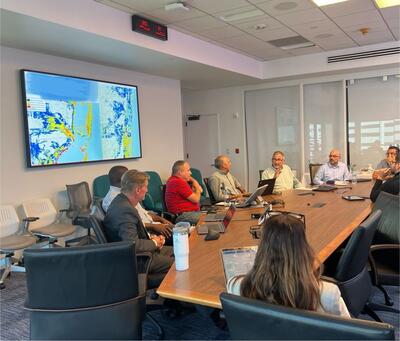
In April, Colorado State University (CSU) released its 2024 forecast, predicting 23 named storms, 11 of which are anticipated to become hurricanes. Similarly, the National Oceanic and Atmospheric Administration (NOAA) is forecasting a range of 17 to 25 total named storms, with anywhere from 8 to 13 becoming hurricanes. As of September 25, we've seen eight named storms: Alberto, Beryl, Chris, Debby, Ernesto, Francie, Gordon, and Helene.
Hurricane Beryl rapidly intensified into a Category 4, becoming the earliest Category 4 storm to ever form in the Atlantic Ocean in June. Shortly after, Beryl became a Category 5, breaking another record and the earliest and strongest Category 5 hurricane in the Atlantic Ocean.
In preparation for a "very active" season, Craig Setzer, Royal Caribbean Group's Chief Meteorologist and Certified Consulting Meteorologist, shared a simulation of their team preparing for a rapidly developing storm.
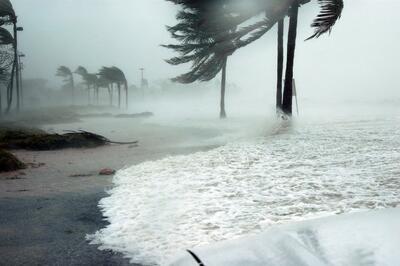
"This year’s simulation was with a storm that rapidly intensifies as it approaches South Florida," Setzer wrote, "This scenario is entirely possible and has happened before in history. Most folks think we will have days and days to watch and prepare. The caveat here was that this system began developing within 3 days of reaching Miami, putting everyone behind the planning curve from the beginning."


